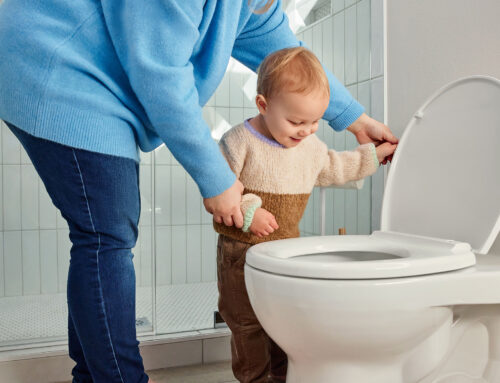Aging Well
There is no single “secret” to aging well, but research suggests several key factors that can contribute to healthy and successful aging:
Exercises for the Elderly
For the elderly, it’s important to focus on exercises that improve strength, flexibility, balance, and cardiovascular health, while also being safe and gentle on the joints. Here are some good exercises for the elderly:
- Walking: Walking is a low-impact exercise that can help improve cardiovascular health, strengthen muscles, and maintain mobility. It can be done indoors on a treadmill or outdoors in a park or neighborhood.
- Tai Chi: Tai Chi is a gentle form of exercise that focuses on slow, flowing movements and deep breathing. It can improve balance, flexibility, and strength, and reduce the risk of falls.
- Yoga: Yoga combines gentle stretching exercises with deep breathing and relaxation. It can help improve flexibility, strength, and balance, as well as reduce stress and anxiety.
- Swimming: Swimming is a low-impact exercise that is easy on the joints. It can help improve cardiovascular health, strength, and flexibility.
- Water aerobics: Water aerobics is another low-impact exercise that can help improve cardiovascular health, strength, and flexibility. The buoyancy of the water reduces stress on the joints.
- Strength training: Strength training exercises, using light weights or resistance bands, can help improve muscle strength and tone, which is important for maintaining mobility and preventing falls.
- Balance exercises: Balance exercises, such as standing on one leg or walking heel to toe, can help improve balance and stability, reducing the risk of falls.
- Chair yoga or seated exercises: For those with limited mobility or balance issues, chair yoga or seated exercises can provide a gentle way to improve flexibility, strength, and balance.
It’s important for the elderly to consult with a healthcare provider before starting any new exercise program, especially if they have any underlying health conditions. A healthcare provider or a qualified fitness instructor can help develop a safe and effective exercise plan tailored to individual needs and abilities.
Diet for the Elderly
A healthy diet is important for the elderly to maintain overall health, manage chronic conditions, and support optimal aging. Here are some key dietary recommendations for the elderly:
- Balanced diet: Eat a variety of foods from all food groups, including fruits, vegetables, whole grains, lean proteins, and healthy fats. This helps ensure you get a wide range of nutrients.
- Fruits and vegetables: Aim to include a variety of fruits and vegetables in your diet, as they are rich in vitamins, minerals, fiber, and antioxidants. These nutrients can help reduce the risk of chronic diseases such as heart disease, cancer, and diabetes.
- Whole grains: Choose whole grains such as whole wheat, brown rice, oats, and quinoa, which are rich in fiber and can help support digestive health and reduce the risk of heart disease and diabetes.
- Protein: Include sources of lean protein in your diet, such as poultry, fish, beans, lentils, and tofu. Protein is important for maintaining muscle mass and strength, which can help prevent falls and support overall mobility.
- Healthy fats: Include sources of healthy fats in your diet, such as olive oil, avocado, nuts, and seeds. These fats can help reduce inflammation and support brain health.
- Calcium and vitamin D: Older adults need more calcium and vitamin D to maintain bone health. Include sources of calcium such as dairy products, fortified plant-based milks, and leafy green vegetables, and sources of vitamin D such as fatty fish, eggs, and fortified foods.
- Hydration: Drink plenty of fluids, especially water, to stay hydrated. Dehydration can be a common issue in the elderly and can lead to various health problems.
- Limit processed foods and added sugars: Try to limit the intake of processed foods, sugary drinks, and snacks, as they can contribute to weight gain, inflammation, and chronic diseases.
- Consider nutrient supplementation: Some older adults may benefit from vitamin or mineral supplements, especially if they have difficulty meeting their nutritional needs through diet alone. However, it’s important to consult with a healthcare provider before starting any supplements.
- Dietary restrictions: If you have specific health conditions or dietary restrictions, such as diabetes or high blood pressure, work with a healthcare provider or registered dietitian to develop a meal plan that meets your individual needs.
Eating a healthy, balanced diet can help older adults maintain their health, manage chronic conditions, and support overall well-being.
Staying Mentally Active
Staying mentally active is important for maintaining cognitive function and overall brain health in the elderly. Here are some ways the elderly can stay mentally active:
- Reading: Reading books – like my What I Believe & Contra John Rawls – newspapers, or magazines can help keep the mind engaged and stimulate cognitive function. Consider joining a book club or discussing what you’ve read with friends or family.
- Puzzles and games: Engaging in puzzles, such as crossword puzzles, Sudoku, or jigsaw puzzles, can help improve memory, attention, and problem-solving skills. Board games and card games can also provide mental stimulation and social interaction.
- Learning new skills: Learning new skills or hobbies can help keep the brain active and engaged. Consider taking up a new hobby, such as painting, gardening, or playing a musical instrument.
- Taking courses: Many community centers, universities, and online platforms offer courses for older adults. Taking a course in a subject you’re interested in can provide mental stimulation and a sense of accomplishment.
- Socializing: Maintaining social connections and engaging in social activities can help keep the mind sharp. Consider joining a club or group, volunteering, or participating in community events.
- Mindfulness and meditation: Practices such as mindfulness and meditation can help reduce stress and improve focus and attention. These practices can be beneficial for overall brain health.
- Brain-training apps: There are many apps available that are designed to help improve cognitive function through various games and exercises. These apps can be a fun and convenient way to stay mentally active.
- Physical exercise: Physical exercise can also benefit cognitive function. Activities such as walking, swimming, or yoga can help improve blood flow to the brain and stimulate the growth of new brain cells.
It’s important for the elderly to find activities that they enjoy and that challenge their cognitive abilities. Mixing up activities and trying new things can help keep the mind engaged and stimulated.
Manage Stress
Managing stress is important for overall well-being, especially for the elderly. Here are some strategies that can help the elderly manage stress:
- Stay connected: Maintaining social connections and spending time with friends, family, and community members can provide emotional support and reduce feelings of isolation.
- Practice relaxation techniques: Techniques such as deep breathing, meditation, yoga, or progressive muscle relaxation can help reduce stress and promote relaxation.
- Stay active: Regular physical activity can help reduce stress and improve mood. Activities such as walking, swimming, or tai chi can be beneficial.
- Maintain a healthy lifestyle: Eating a balanced diet, getting enough sleep, and avoiding excessive alcohol and caffeine can help reduce stress.
- Engage in hobbies: Hobbies and activities that you enjoy can provide a sense of purpose and fulfillment, which can help reduce stress.
- Seek support: Talking to a therapist or counselor can help you manage stress and develop coping strategies. Support groups can also provide a sense of belonging and understanding.
- Practice gratitude: Taking time to reflect on the things you are grateful for can help shift your focus away from stressors and improve your overall outlook.
- Set boundaries: Learn to say no to things that cause you stress or overwhelm you. It’s okay to prioritize your own well-being.
- Stay informed: Stay informed about current events and issues, but try to limit exposure to news and media that causes you stress or anxiety.
- Seek help: If you’re feeling overwhelmed by stress, don’t hesitate to seek help from a healthcare provider or mental health professional. They can offer support and guidance on managing stress.
Get Enough Sleep
Getting enough sleep is important for the elderly to maintain overall health and well-being. Here are some strategies to help the elderly get enough sleep:
- Establish a bedtime routine: Creating a consistent bedtime routine can signal to your body that it’s time to wind down and prepare for sleep. This may include activities such as reading, taking a warm bath, or practicing relaxation techniques.
- Create a sleep-friendly environment: Make sure your bedroom is quiet, dark, and comfortable. Consider using earplugs or a white noise machine to block out noise, and use curtains or blinds to block out light.
- Limit screen time: Avoid using electronic devices such as smartphones, tablets, or computers close to bedtime, as the blue light emitted by these devices can interfere with sleep. Try to limit screen time at least an hour before bedtime.
- Limit caffeine and alcohol: Avoid consuming caffeine or alcohol close to bedtime, as these substances can interfere with sleep. Instead, opt for herbal tea or warm milk, which may promote relaxation.
- Stay active during the day: Regular physical activity can help improve sleep quality and duration. Aim for at least 30 minutes of moderate-intensity exercise most days of the week, but avoid vigorous exercise close to bedtime, as it may be stimulating.
- Manage stress: Stress and anxiety can interfere with sleep. Practice relaxation techniques such as deep breathing, meditation, or progressive muscle relaxation to help calm your mind and promote sleep.
- Limit naps: While short naps can be beneficial for some people, long or frequent naps during the day can interfere with nighttime sleep. If you need to nap, try to keep it to 20-30 minutes and avoid napping late in the day.
- Maintain a regular sleep schedule: Try to go to bed and wake up at the same time every day, even on weekends. This can help regulate your body’s internal clock and improve sleep quality.
- Address underlying sleep disorders: If you’re having trouble sleeping, it’s important to talk to your healthcare provider. They can help identify and treat underlying sleep disorders such as sleep apnea, insomnia, or restless legs syndrome.
By incorporating these strategies into your daily routine, you can improve your chances of getting enough restful sleep and waking up feeling refreshed and rejuvenated.
Find Purpose & Meaning
Finding purpose and meaning in life is important at any age, including for the elderly. Here are some ways the elderly can find purpose and meaning:
- Engage in meaningful activities: Participating in activities that are personally meaningful can help give a sense of purpose. This could include hobbies, volunteering, or spending time with loved ones.
- Set goals: Setting realistic goals, whether big or small, can provide a sense of purpose and motivation. Goals could be related to health, relationships, personal growth, or hobbies.
- Stay connected: Maintaining social connections with friends, family, and community members can provide a sense of belonging and purpose. Consider joining clubs, groups, or organizations that align with your interests.
- Share wisdom and experience: The elderly often have valuable life experience and wisdom to share. Sharing your knowledge and skills with others, such as through mentoring or teaching, can provide a sense of purpose and fulfillment.
- Explore spirituality: For many people, spirituality or religion can provide a sense of purpose and meaning. Engaging in spiritual practices, such as prayer, meditation, or attending religious services, can help foster a sense of connection and purpose.
- Stay mentally and physically active: Keeping the mind and body active can help maintain a sense of purpose and well-being. Engage in activities that challenge you mentally and physically, such as puzzles, exercise, or learning new skills.
- Reflect on life: Taking time to reflect on your life, values, and what is important to you can help clarify your sense of purpose and meaning. Consider writing in a journal or talking with a trusted friend or counselor about your thoughts and feelings.
- Seek new experiences: Trying new things and stepping outside your comfort zone can help you grow personally and find new sources of meaning and purpose in life.
Finding purpose and meaning in life is a personal journey that may evolve over time. It’s important to be open to new experiences and opportunities for growth, and to seek support from others when needed.




